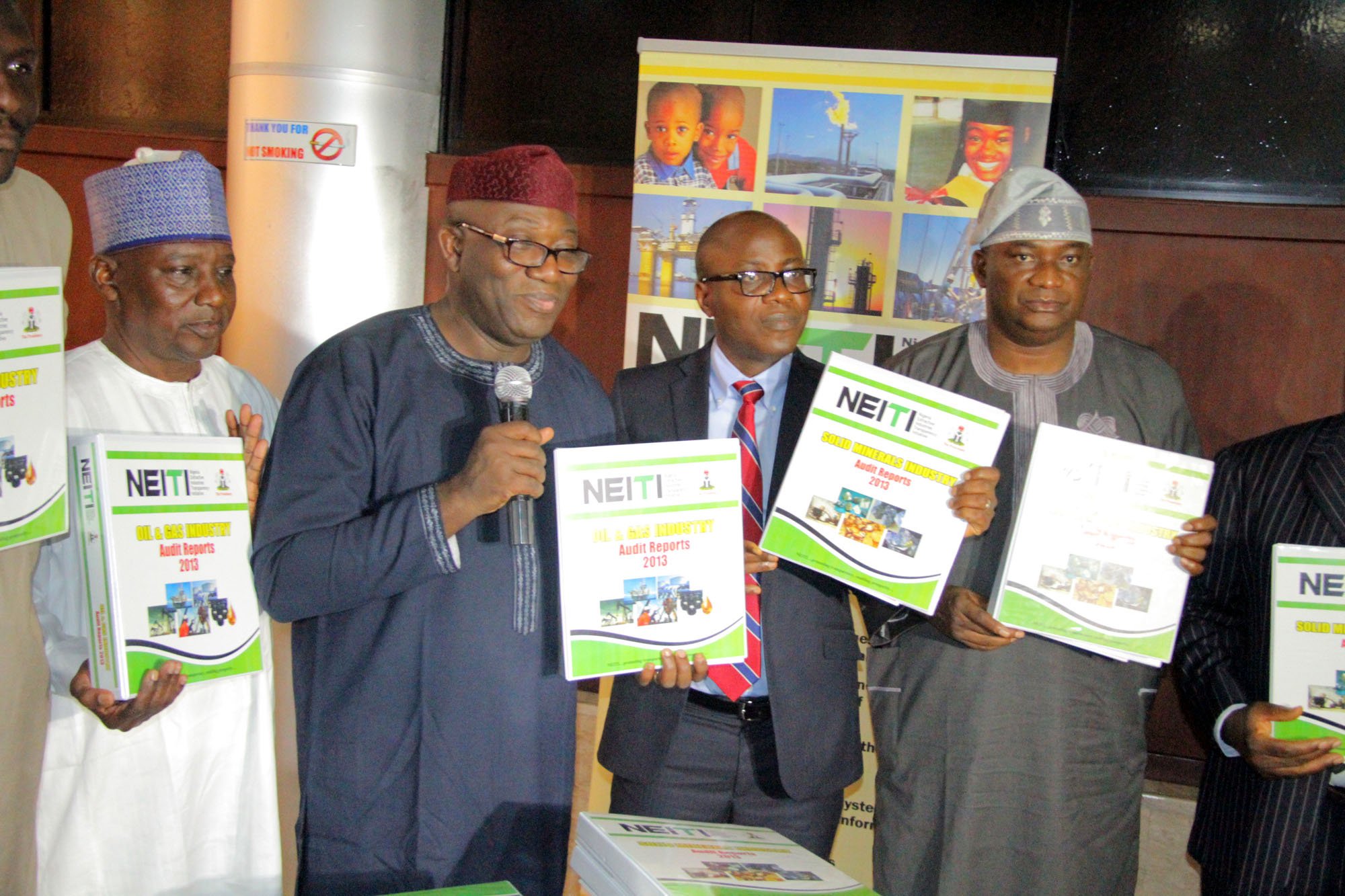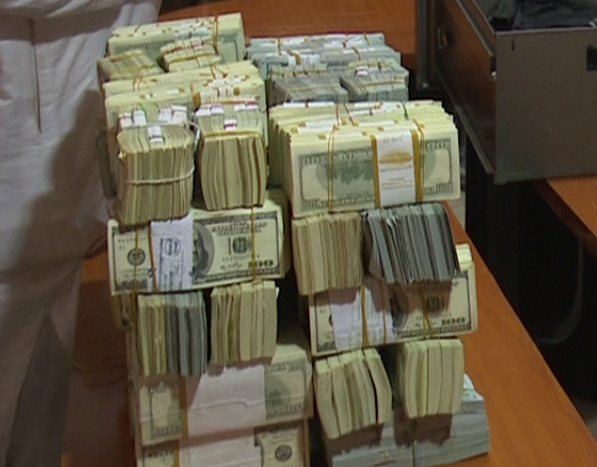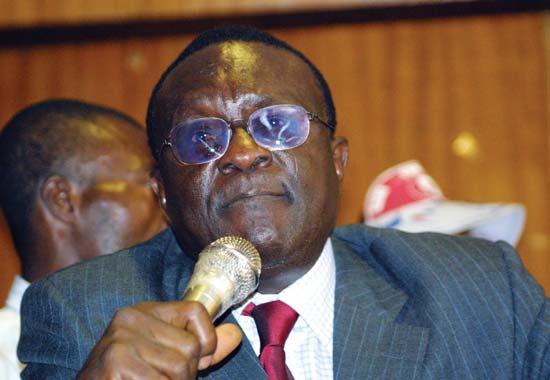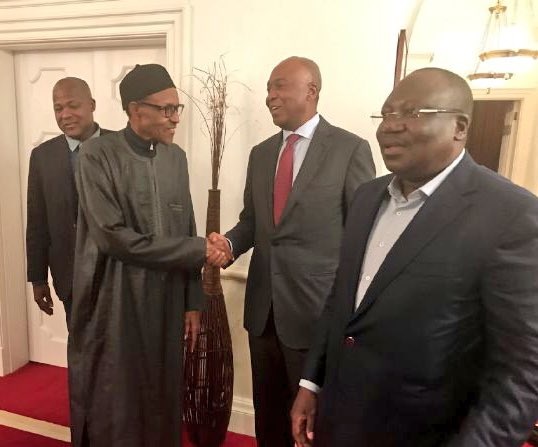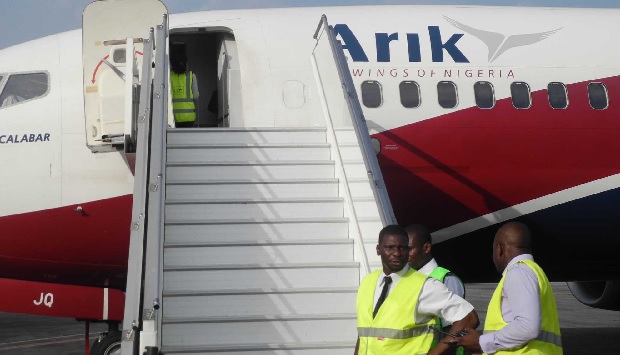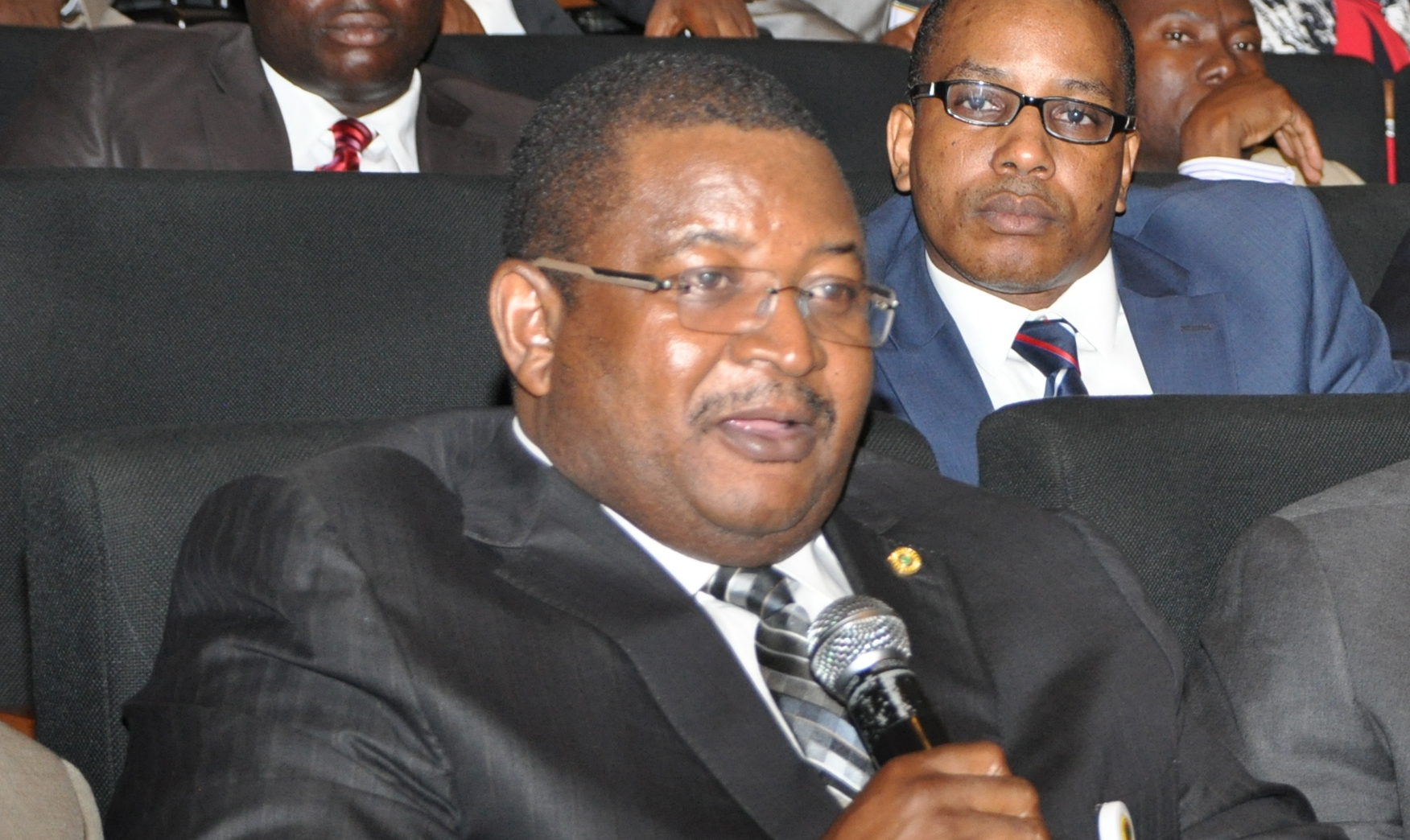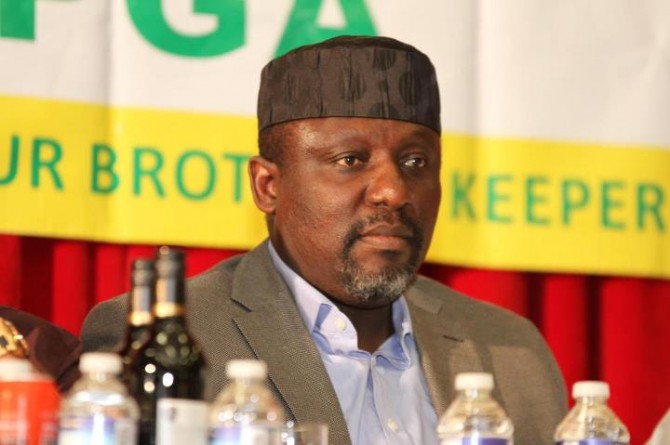Minister of Solid Minerals, Kayode Fayemi (middle), Executive Secretary , Nigerian Extractive Industry Transparency Initiative (NeITI), Waziri Adio (right) and members of NEITI Board during the release of NeITI's 2013 Audit Reports in Abuja on Monday
You must have heard these theories: IBB is the real owner of Globalcom; Dangote is ‘fronting’ for some big Nigerian politicians. Though hugely unsubstantiated, these theories reverberate with Nigeria’s middle class.
Interestingly, NEITI, Nigeria’s arm of the global Extractive Industries Transparency Initiative (EITI), intends to solve this riddle.
NEITI has its job cut out for it. The recent discovery of huge funds, in foreign currencies, in Andrew Yakubu’s house shows public officers could have the resources to invest in major companies, illegally though, in Nigeria.
Here’s how it is done: Since public officers with slush funds can’t invest the money in their names, they open companies whose control and ownership is hidden. Such companies actually do not do any work, but own substantial shares in some major companies which they benefit from. Companies, with hidden owners, can buy mansions and yachts from their bank accounts.
Advertisement
Such anonymous companies can list lawyers and board members, who have no visible relationship with the real owners, as major shareholders. The real owners are called beneficial owners. All real benefits from these investments come to them.
The strategy of opening anonymous companies rubbishes the checks with Bank Verification Number (BVN). While the BVN could checkmate public officers who might have received kickbacks, it can’t reveal anyone who has received some profit from been an anonymous owner.
But NEITI has proposed a way to solve this problem. NEITI says it has published a roadmap – just like some other EITI countries – on how to achieve full disclosure of all those who own or benefit from different oil and gas companies by 2020.
Advertisement
Actually EITI, NEITI’s mother organization, requires this register to be created by 2020.
This is actually the best way to check corruption. A public register of all the beneficiaries of all major companies in Nigeria, which would be available to the public, would reduce the movement of the proceeds of corruption.
Despite relevant laws, NEITI argues that there are some structures that hinder mandatory ownership disclosure in Nigeria. This is true.
NEITI also argues that checking how much tax an oil company pays is not enough to check corruption. So, it has decided to step up its game. They have made all the right arguments, but arguments alone will not win this battle for NEITI.
Advertisement
It will be fighting the high and mighty. The Panama papers show how politicians use shell companies. Many of these shell anonymous companies doing business in Nigeria’s energy industry were not incorporated in Nigeria. So, NEITI would also be contending with foreign countries who might not want to cooperate with it.
NEITI has urged the president to issue an executive order making it mandatory for companies to disclose all beneficial owners. This means the ball is already in the president’s court.
NEITI cannot win this battle alone. The forces against it would be humongous. It requires the cooperation of all well-meaning Nigerians, especially the Nigerian Bar Association (NBA).
It might not be able to achieve this by 2020 in Nigeria. However, a journey of thousand miles starts with a single step.
Advertisement
Views expressed by contributors are strictly personal and not of TheCable.
Add a comment

